When you talk search engines with marketers, Google often is the first name you hear. It’s the heavyweight of online search, with more than an 81% share of the search market.
Google isn’t the only player on the field. A variety of alternative search engines are growing in popularity and attracting users from different industries.
In this post, we’ll look at 11 top search engines worldwide, so you know where to focus your optimization efforts in 2024.



Best search engines
- Bing
- Yahoo!
- Yandex
- Baidu
- DuckDuckGo
- Ask
- Narver
- AOL
- Internet Archive
- Ecosia
1. Google
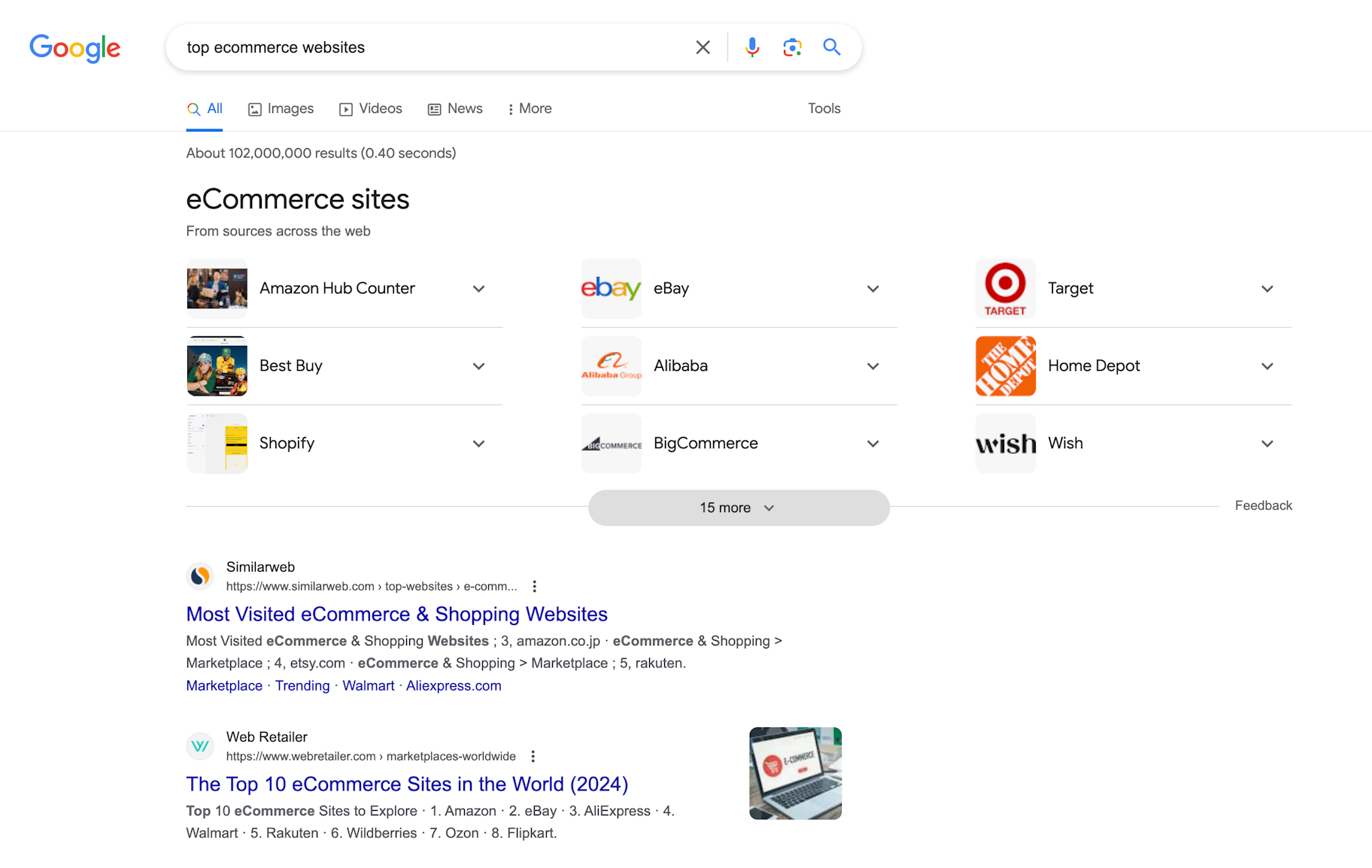
No surprises here: as of January 2024, Google holds first place in search, with more than 81% of the market share. Its popularity comes from delivering fast and accurate search results.
→ Click Here to Launch Your Online Business with Shopify
Google’s algorithms are key players here. They sift through tons of search data to find what users are looking for. This system is what makes Google searches so reliable and quick.
Its search engine results pages (SERPs) often include features like knowledge panels, People Also Ask sections, and feature snippets. Keep this in mind when optimizing your website for Google’s search platform.
Note: It’s worth mentioning that Google is the default search engine for most web browsers. This includes widely used browsers like Chrome and Safari, among others.
2. Bing
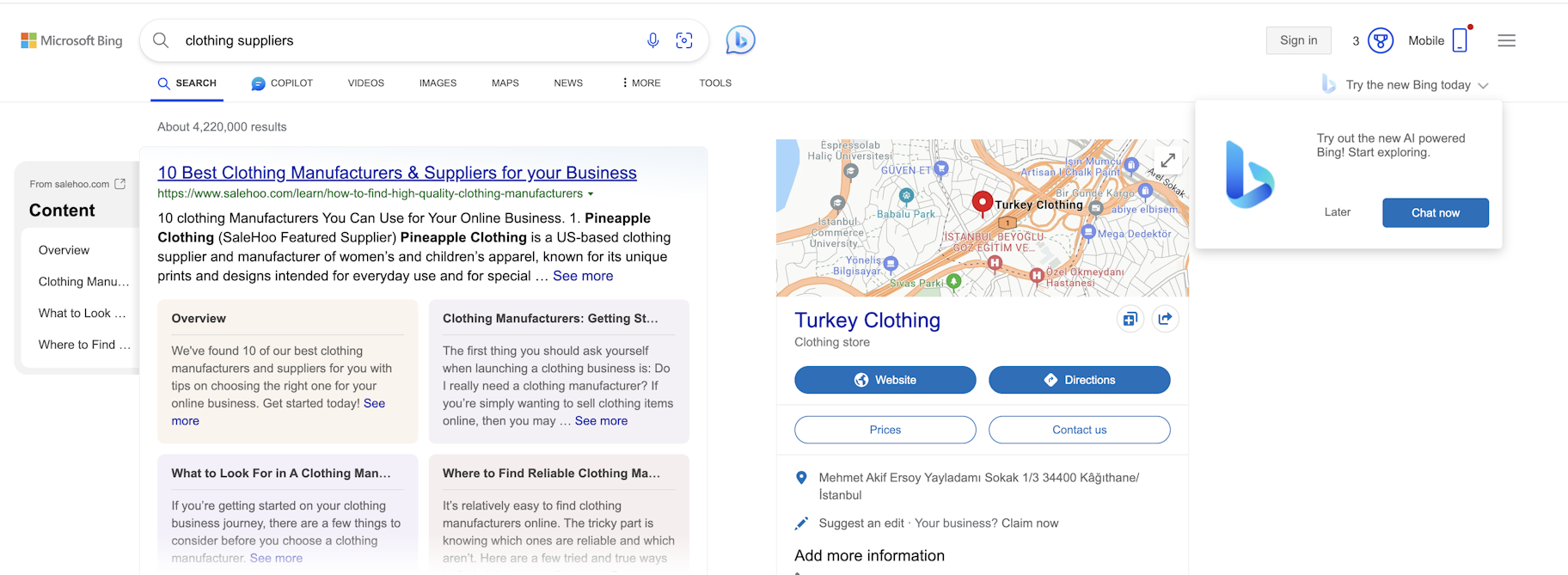
Bing is the second largest search engine in the world, with more than 10% search market share.
This web search engine is owned and operated by Microsoft and has its origins in the previous search engines MSN Search and Windows Live Search.
Like Google, the search engine also filters search results into different tabs, such as images, videos, maps, and news. Additionally, it has a dedicated rewards program that gives users redeemable points when they shop or search using Bing.
3. Yahoo!
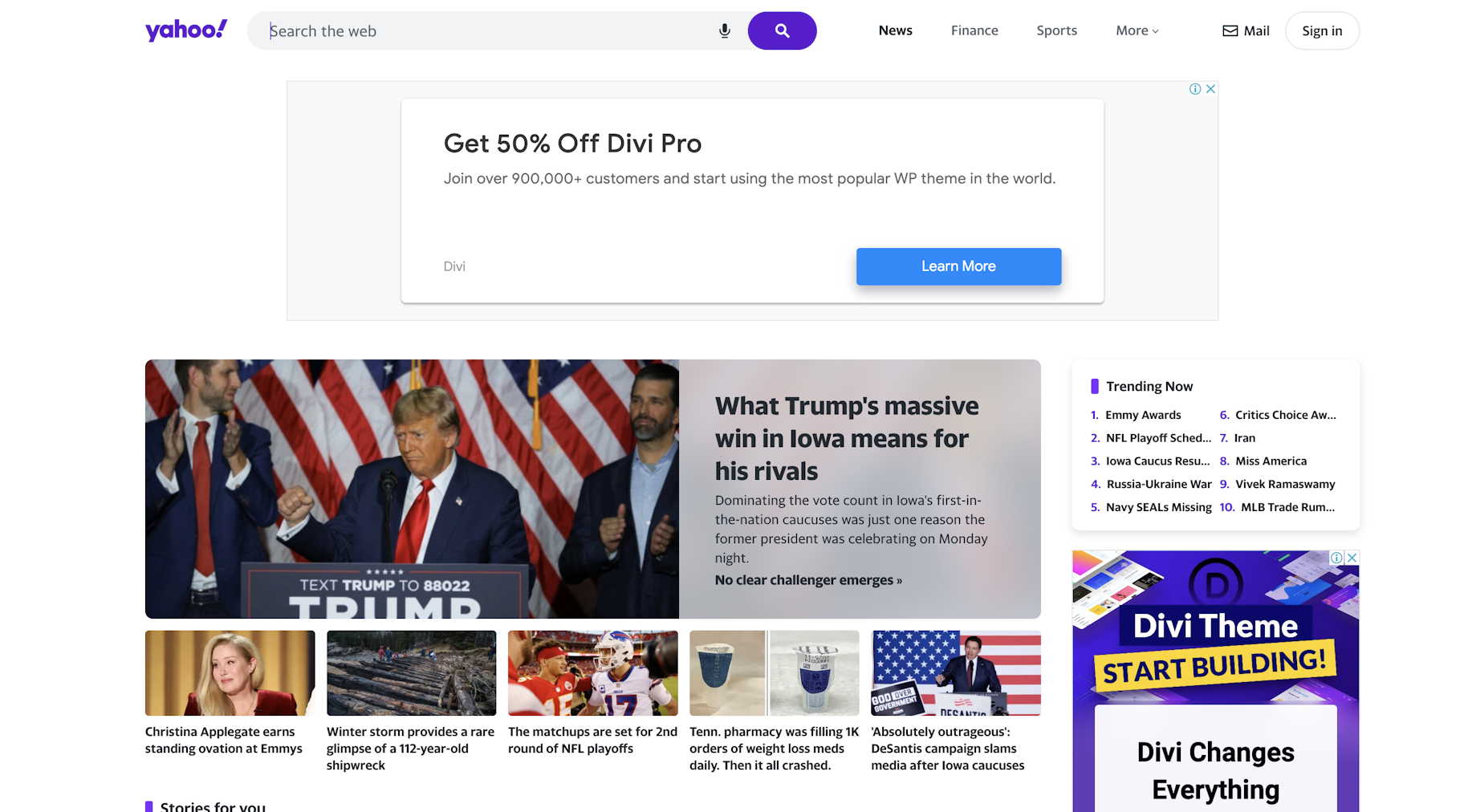
Third on our list of top search engines is Yahoo!, with a market share of just over 2%.
Yahoo! was once a heavily used search engine with a distinct identity. Today, it’s more of a web portal featuring different types of content, including trending news stories, weather forecasts, and more.
Plus, Yahoo! is now powered by Bing, so the results from both search engines are very similar.
4. Yandex
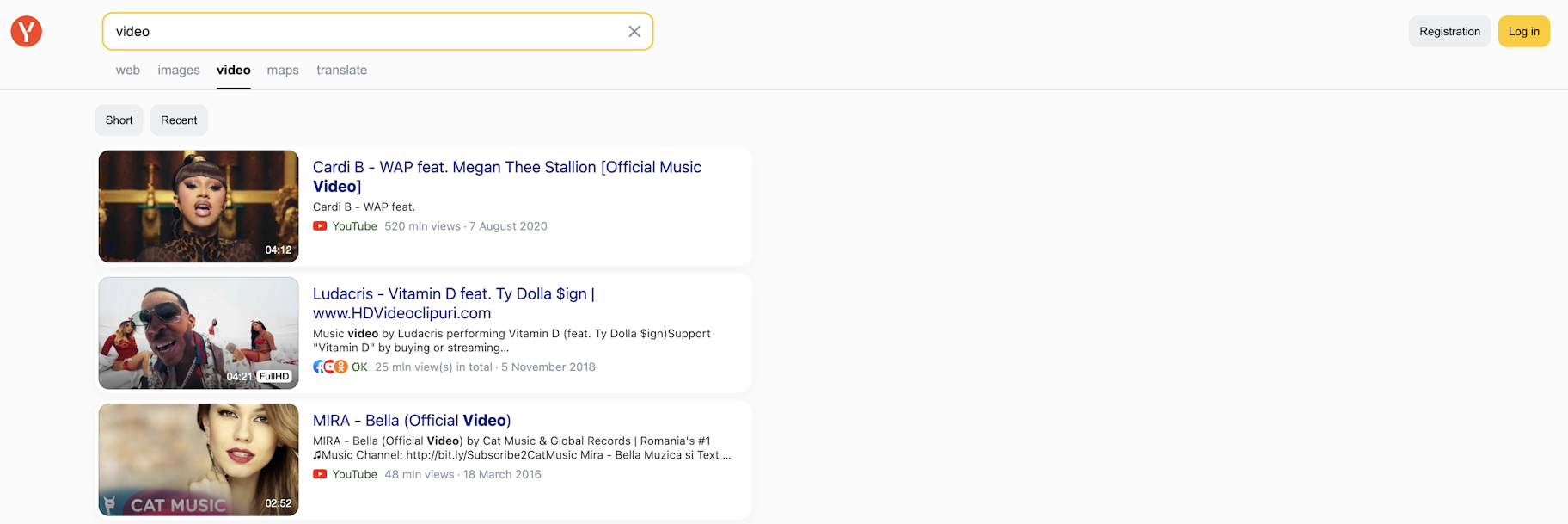
Yandex has nearly 2% of the global search market share. While it’s not that renowned in the US, Yandex is the most popular search engine in Russia.
Yandex uses various algorithms and metrics to figure out how useful a website is. One of these is site quality index, or SQI. This index looks at things like how big a site’s audience is, how happy users are with it, how much they trust it, and more.
Moreover, Yandex assesses if a searcher is looking for local information, and adjusts its results accordingly. To make sure your site appears in these region-specific searches, you need to set your website’s location in Yandex’s webmaster tools.
5. Baidu
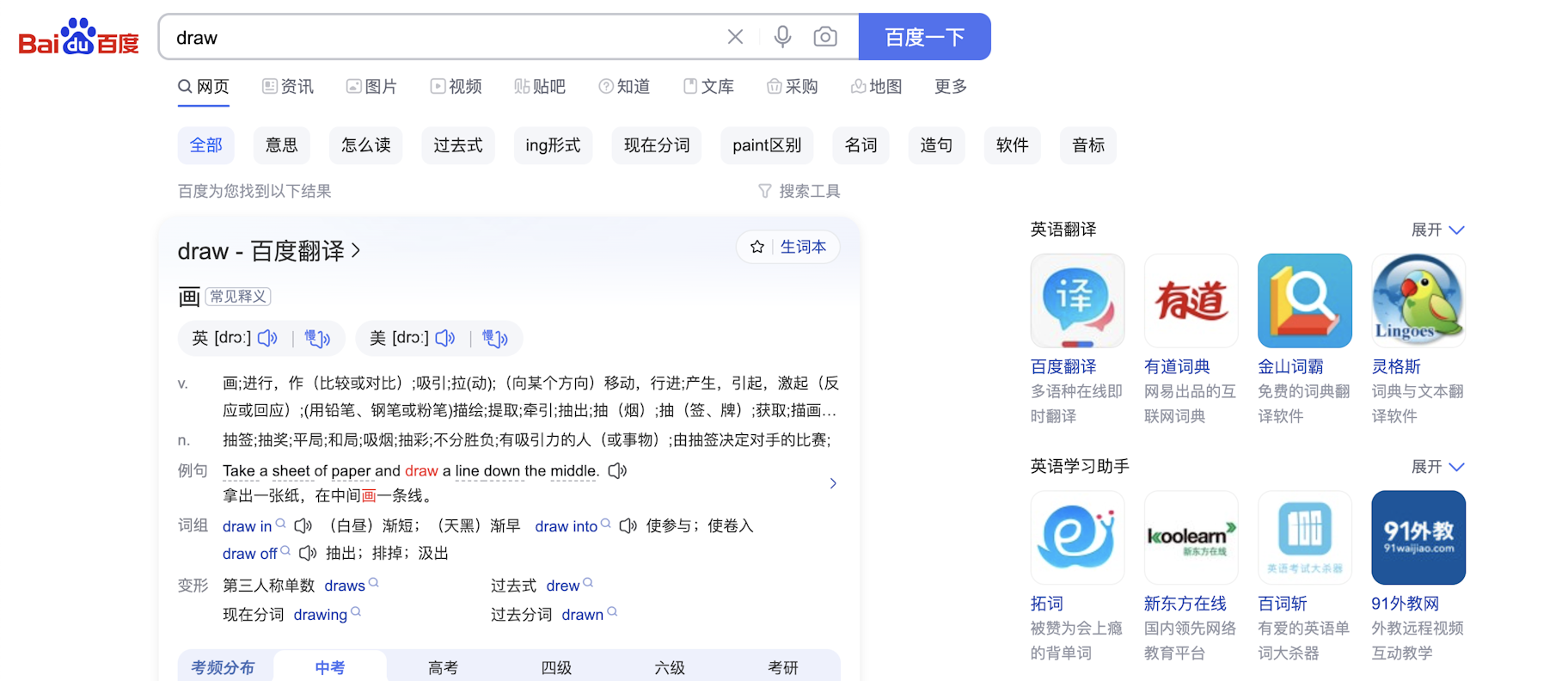
Baidu launched in 2000 and is now the top search engine in China. It’s been growing fast, and in recent years, it’s surpassed other search engines in market share.
The look of Baidu is quite like Google’s, but written in Mandarin. It has a white background, blue links, and green URLs.
Just like Google, Baidu wants to provide the best quality search results to its users. If you’re looking to reach the Asian market, think about using Baidu.
6. DuckDuckGo
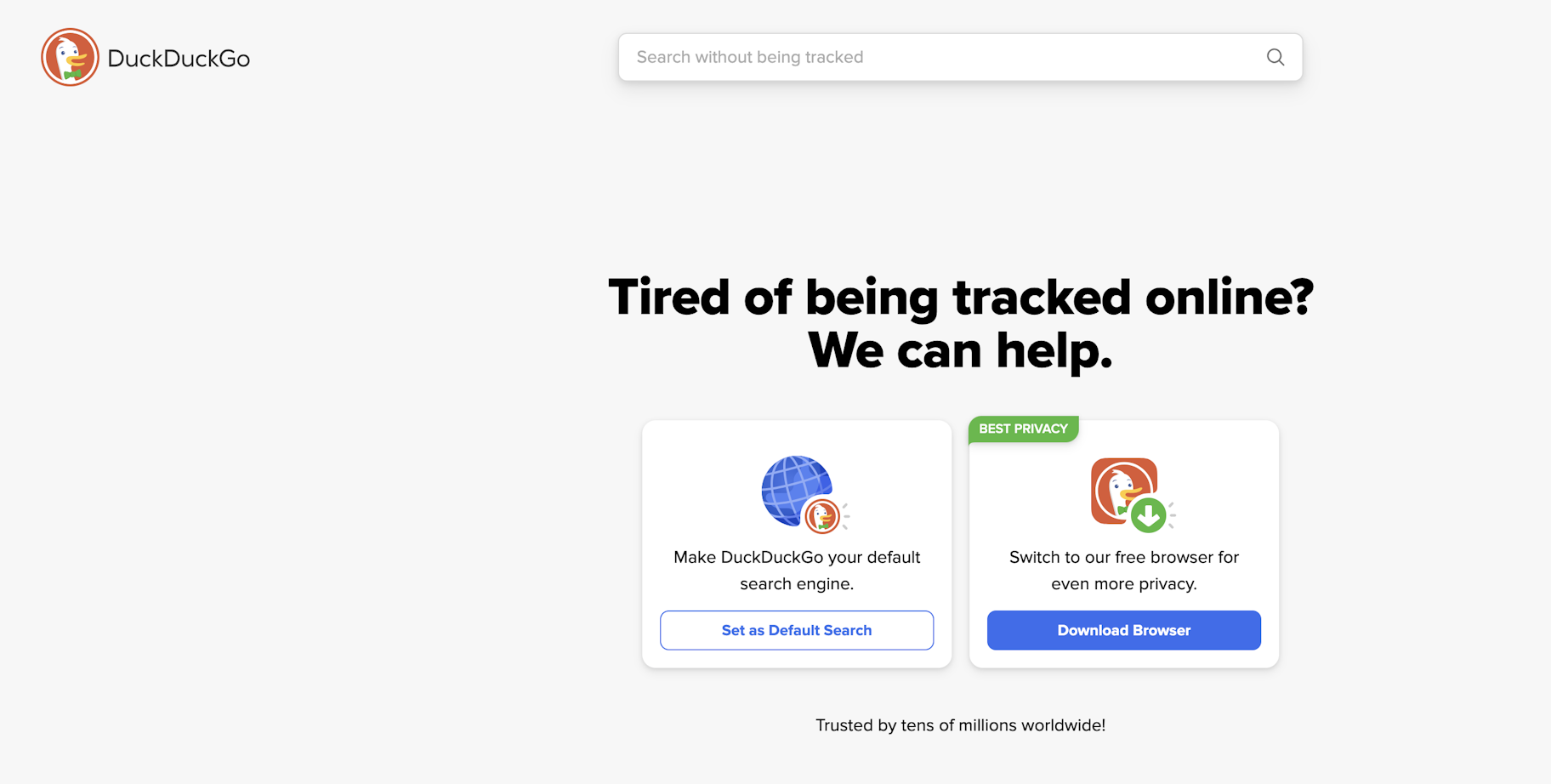
DuckDuckGo is a privacy focused search engine that’s gaining traction among users concerned about privacy.
DuckDuckGo pulls its search results from a mix of its own crawler, other search engines, and various sources. However, it doesn’t use Google’s data, meaning you’ll need to diversify your SEO strategies beyond just Google’s algorithms to rank on its platform.
Moreover, DuckDuckGo offers unique features like “bangs”, which are shortcuts that direct users to search directly on other sites. For instance, typing “!w” followed by a search term will lead directly to Wikipedia’s search results. Understanding and possibly integrating such features could enhance user experience for those coming from DuckDuckGo.
7. Ask

Founded in 1996 by Garrett Gruener and David Warthen in California, Ask originally was named Ask Jeeves.
The idea was not to create another directory or search engine, but a question-and-answer service, much like a virtual concierge. This is why the founders chose to name the site after P.G. Wodehouse’s character Jeeves the butler.
The company dropped “Jeeves” from its name in 2006, when it rebranded as simply Ask.
In 2010, Ask gave up on the search engine market after facing stiff competition from more successful search engines. Now, Google powers Ask search results.
8. Naver
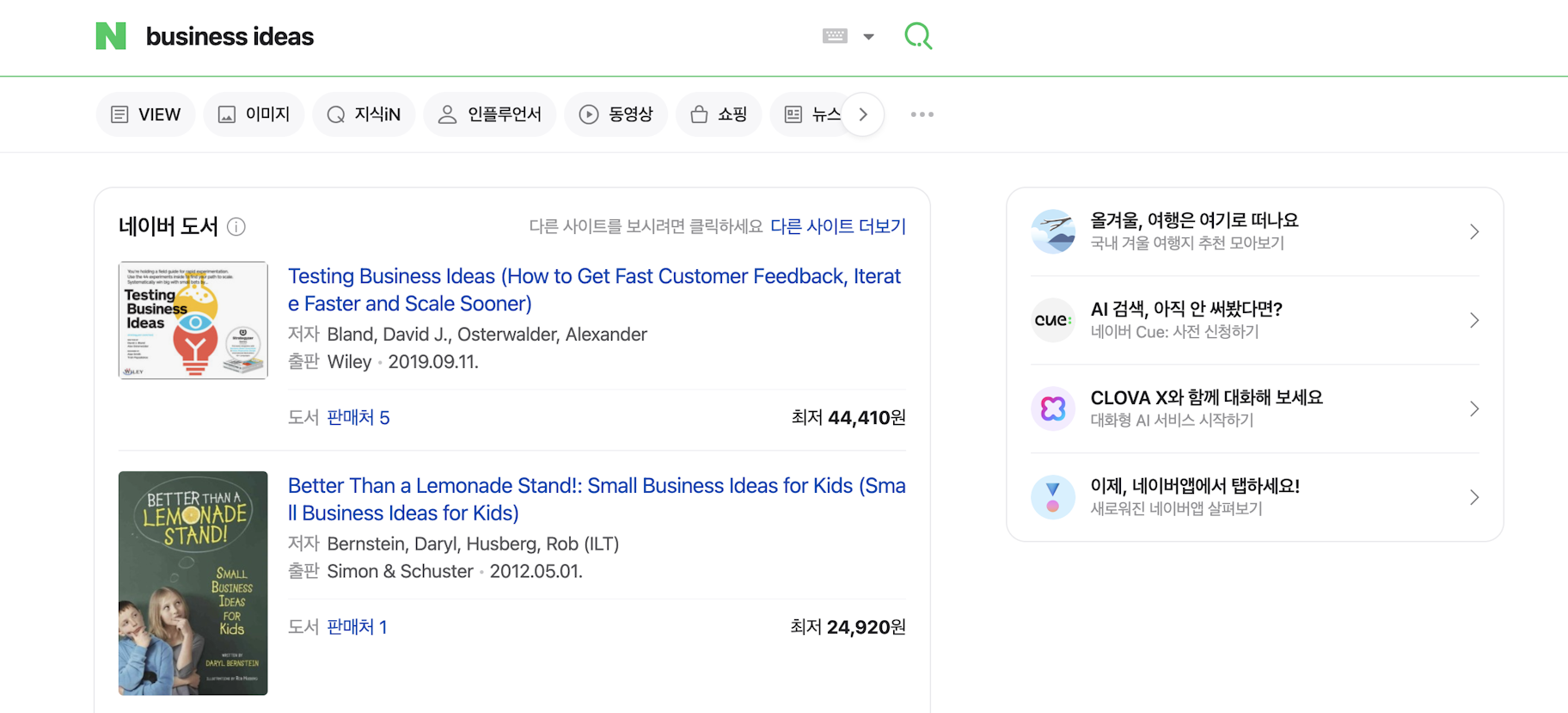
Naver holds the title of South Korea’s second most popular search site, with a 34% share in the market.
It’s a specialized search engine that focuses on local Korean content. With Naver, users can catch up on news and get search suggestions, among other things.
If you’re looking to target the South Korean market, make sure your search engine optimization strategies align with Naver’s focus.
9. AOL
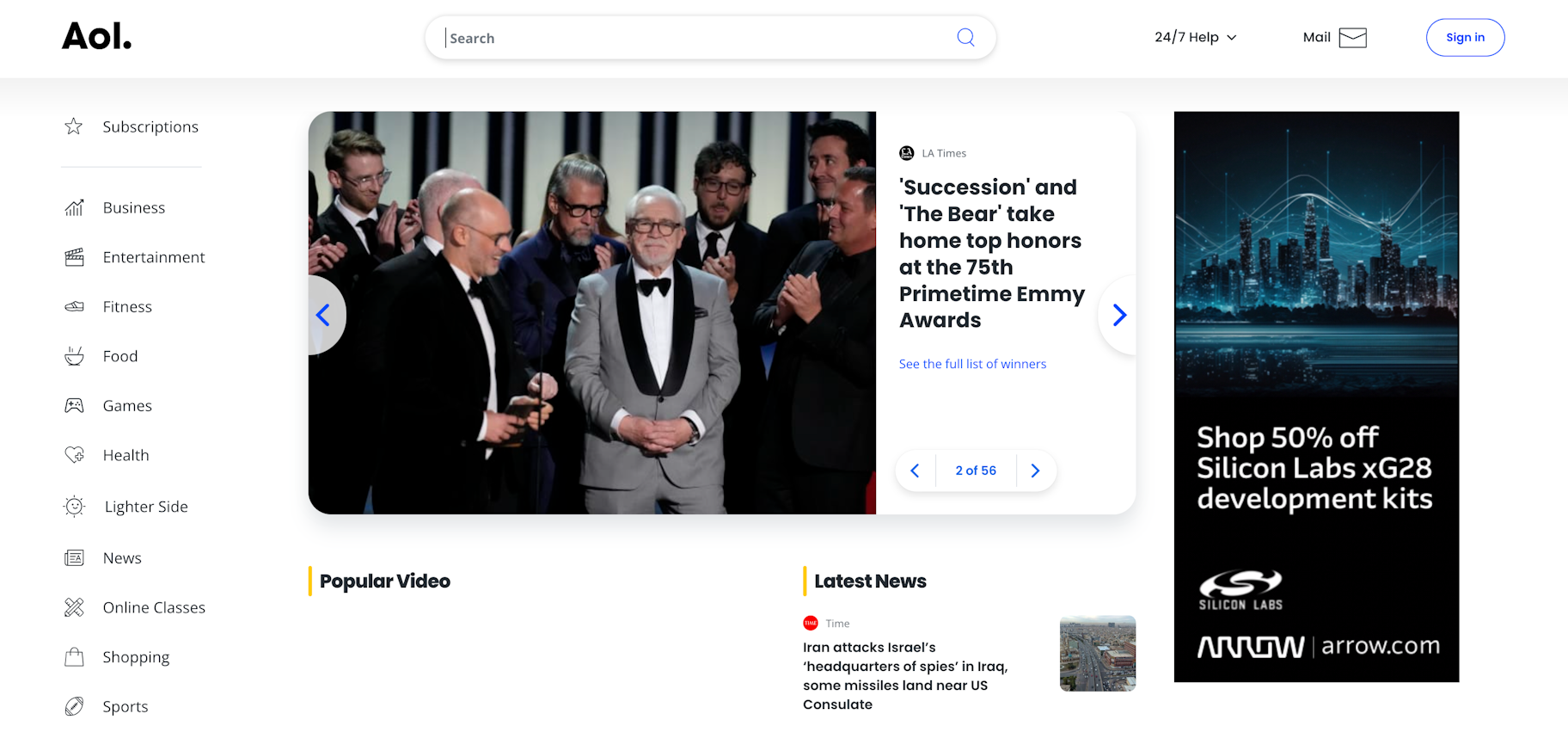
AOL is a search engine that Yahoo! owns, with Bing powering its search results.
AOL is similar to Yahoo! because it’s also part of the Bing search network. This setup lets advertisers promote their campaigns on all three search engines—AOL, Yahoo!, and Bing.
They can even advertise on related sites, like MSN.com.
10. Internet Archive

The Internet Archive is a unique search engine that focuses on preserving and sharing content rather than ranking it.
You can find a wide range of materials here, including books, movies, music, and even snapshots of entire websites.
A key feature of the Internet Archive is the WayBackMachine. This tool allows you to travel back as far as 1996 to see how websites appeared at a specific time. It’s perfect for exploring a site’s search history and understanding its development over the years.
11. Ecosia
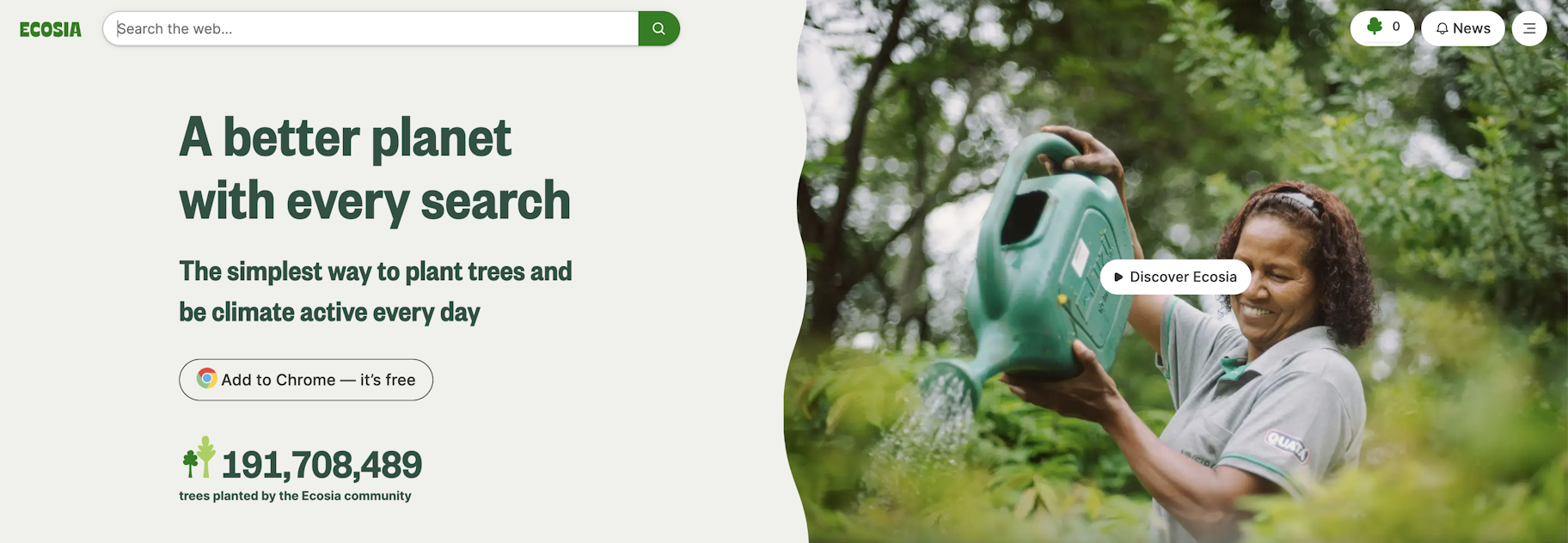
It might not be one of the most popular search engines in the world, but we feel Ecosia deserves a special mention.
Ecosia is based in Berlin, Germany, and uses the money from advertising to plant trees around the world to benefit people, the environment, and local economies. This means that just by using the search engine, you can contribute to the environment.
Plus, the search engine provides an individual counter that tells you how many trees your searches have planted.
Optimizing your site for top search engines
Ultimately, optimization requires matching your efforts with the right search engine.
Whether targeting a global audience with Google or focusing on privacy-conscious users with DuckDuckGo, understanding each engine’s focus is key to effective SEO.
Embrace the diversity of these platforms and you’ll have a successful foundation for generating organic traffic for your site.
Top search engines FAQ
What is the number one search engine right now?
Google is the number one search engine by far, with a nearly 82% hold on the search market. That’s why SEO experts are always trying to crack Google’s ranking secrets. Plus, Google’s great for searching news, images, videos, and even academic journals.
What is the oldest search engine engine around?
The first-ever search engine was created in 1990 and was named Archie. If we’re talking about the oldest search engines still going, there’s WebCrawler, Yahoo!, and Lycos—all born in 1994.
What are the three most used search engines?
The big three search engines are Google, Bing, and Yahoo! These are the names you’ll hear most when people talk about searching online.
What search engines use AI?
Many search engines today power their search results with AI. For example:
- Bing uses Bing AI to power its search results.
- Brave Search runs on Brave AI.
- Google uses Bard AI.
Which search engines have their own crawlers
Here’s a list of search engines that have their own web index and crawl the internet:
- Bing
- Yahoo!
- Baidu
- DuckDuckGo
Most other search engines lean on Google or Bing for their results.






